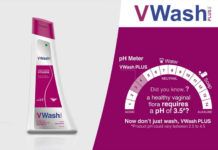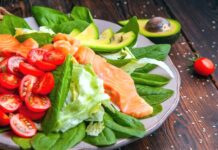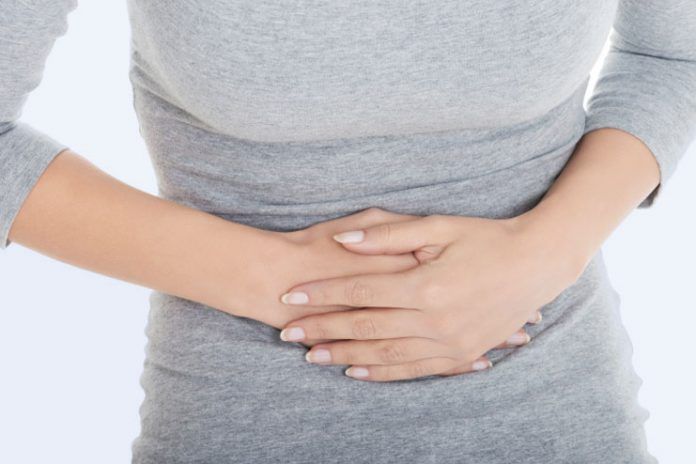Affiliate Disclaimer
Some links in this article are affiliate links. We may earn a small commission if you make a purchase through these links, at no extra cost to you. We only recommend products we find useful to our readersSeveral useful bacteria reside on and inside the human body. Such bacteria are called resident bacteria and are beneficial in numerous ways by aiding with the proper functioning of the body. One such bacteria is Escherichia coli (E. Coli), which resides in the gut of human and some animals. In contrary, other strains of same bacteria (E. Coli)) causes severe health issues in humans. Surprising? Keep reading to learn more about E. Coli infections in humans and various symptoms linked to the infection and treatment for E. Coli infections.
What Is E-Coli?
Escherichia coli (E-Coli) is the resident bacteria in the intestines of animals and humans. Several e-coli strains are a part of gut flora and are harmless. In fact, a few e-coli strains keep the digestive tract healthy.
However, some strains like E. coli O157: H7 can cause severe problems like diarrhea, vomiting, abdominal cramps, etc. Such strains usually enter when contaminated food is consumed. Around 75% to 95% of urinary tract infections are caused due to e-coli strains.
Some strains of e-coli produce toxins called Shiga. The toxin producing strains are called Shiga toxin-producing E. coli or STEC. These toxins damage the intestine lining and may also cause acute kidney failure in children and other life-threatening symptoms even in adults, like liver failure, confusion, bleeding, seizures, fever, etc. Seek immediate medical attention in case of any of these symptoms.
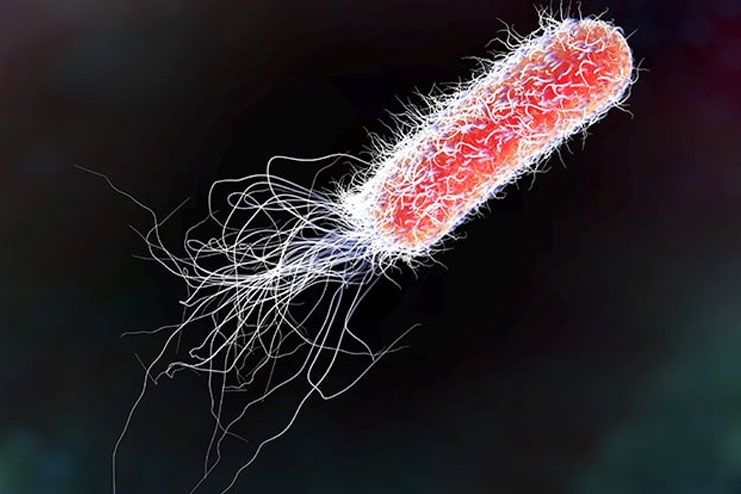

Causes Of E-Coli Infection:
Harmful E. Coli strains enter the body through the ingestion of contaminated food like untreated milk, ground meat, beverages, fruits or vegetables.
- If the meat is not cooked well and contains E. Coli, the chances for the strains to enter the body are high.
- Similarly, unpasteurized or untreated milk or cheese if not boiled or heated enough, can make the way from the cow’s udder to the human body.
- Manure of the nearby animals may contaminate fruits and vegetables.
- Water, especially in pools, ponds or lakes, may contain E. Coli and when such contaminated is swallowed, the body gets infected.
- Also, improper hygiene may contaminate other food items in the kitchen and when such foods are consumed, the infection develops.
Hence, hygiene and healthy food habits are major contributors to prevent E. Coli contamination. The infection may also pass to other family members if proper care is not taken.
Symptoms Of E-Coli Infection:
Now, what are the symptoms associated with and E. Coli infection? Symptoms may start building slow and may show up after 2 to 5 days of the ingestion of the contaminated food.
The common symptoms of an E-Coli Infection are:
- Bloody diarrhea
- Nausea
- Abdominal cramps and
- Constant fatigue and fever
These are the early symptoms and if the infection is milder, it may take a week or more for total recovery. At times, the infection may go away on its own. However, some may experience complications like hemolytic uremic syndrome that affects kidneys, especially in aged people or children in whom the immune system is weak.
Other complications fall under 3 categories, including:
1. Hemorrhagic Diarrhea:
It is a condition of presence of blood in the diarrheal stools and with severe abdominal pain. In some cases, this may lead to dehydration and anaemia.
2. Hemolytic-uremic syndrome (HUS):
The symptoms of HUS include fever, nosebleeds, bruising, shortness of breath, fatigue, body swelling, jaundice, etc. These are late E- Coli symptoms, which develop a week after the beginning of the diarrhea. This syndrome is common among kids below 10 years of age.
3. Thrombotic thrombocytopenic purpura (TTP):
This is the case of platelet loss and symptoms differ from person to person. The symptoms include fever, bruising, weakness, mental impairment, kidney failure, etc. Plasma exchange and infusion techniques have rapidly reduce the death rate in TTP patients since 1980s.
Diagnosis And Treatment For E-Coli:
If any of the symptoms are observed, the doctor may ask for diagnosis through the stool sample examination. To detect the E. coli 0157:H7 strains, the stool sample of the patients are cultured on the special culturing plates and are tested with antiserum or antibodies that react with only those strains. The test may take a few days to offer results.
Other tests like blood tests (complete blood count or CBC) and platelets, blood levels of electrolytes, creatinine, and blood urea nitrogen (BUN) are periodically performed to look for the TTP or HUS development.
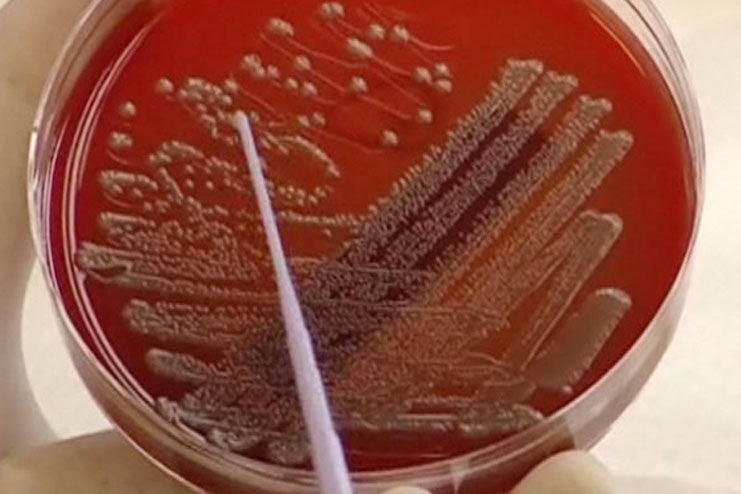

If the E. Coli infection gets diagnosed and is associated with watery diarrhea, antibiotics are prescribed. If the Shiga toxin-producing E. coli are suspected, antibiotics are not suggested as they raise the levels of the toxin production and worsens the condition. Rather, a plenty of fluids are advised to maintain the hydration levels in the body.
However, the treatment for severe symptoms of infection and complications may include treatment in an Intensive care unit (ICU); red blood cell transfusion, intravenous fluids and electrolytes, plasma exchange, platelet transfusion, kidney dialysis, hypertension medications, kidney transplantation, etc.
How To Prevent E-coli
Prevention E. Coli infection is nothing but trying to lessen the risk factors for the same. Follow simple hygiene conditions to avoid a wide range of infections.
- Wash your hands thoroughly before preparing food, eating and feeding.
- Be very careful while preparing the food for infants and toddlers. Use sterilized utensils to reduce the risk.
- Wash your hands each time you change your child’s diaper, or cleans the house.
- Wash your hands when you get into contact with your pets.
- Consume thoroughly cooked food and treat the foods thoroughly before consuming.
- Avoid raw or unpasteurized dairy products and unpasteurized juices.
- Avoid swallowing water while playing in ponds, streams, lakes, swimming pools, and backyard pools.
- It is important to prevent cross contamination during food preparation by washing cutting boards, counters, utensils, etc.
- Arrange separate chopping boards for raw foods like meat, fruits and vegetables.
In conclusion, certain e-coli strains that are acquired through the consumption of contaminated food cause e-coli infections. In milder cases, the infections subsides on its own within a week. But in much severe cases, medical treatment is needed.
FAQs
1. Is E-Coli Contagious?
A. E-Coli may be passed from one person to other person due to to the lack of hygiene. For instance, if an adult cleans up a child infected with E- Coli and does not wash the hands well before touching the mouth, the infection may spread.
2. Which Foods Are To Be Eaten In Case Of E. Coli Consumption?
A. Low-fiber foods are advised when infected with E. Coli. They include foods like eggs, rice, crackers, toast, etc. Avoid dairy products like cheese, milk, butter, etc. which can worsen the symptoms. Also, avoid any high fat or high fiber foods.
3. What Are The Risk Factors For E. Coli Infection?
A. Risk factors for the development of the E. Coli infection include age, time of the year, strength of the immune systems, consumption of certain foods.
- Children and older adults with weakened immune systems are at higher risk of E. Coli infection. People with the chronic illness like AIDS or cancer may get more ill and susceptible to infection.
- Certain foods like improperly cooked bakery products, apple juice, unpasteurized or raw milk, etc can transfer the strains easily.
Moreover, decreased stomach acid levels are also the culprits. And the situation arises due to the ingestion of some medications like pantoprazole (Protonix), omeprazole (Prilosec), esomeprazole (Nexium), and lansoprazole (Prevacid).

















